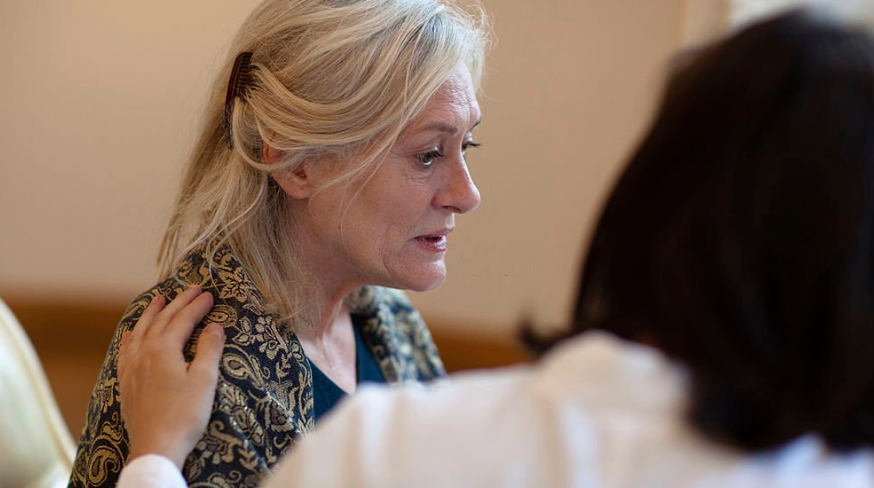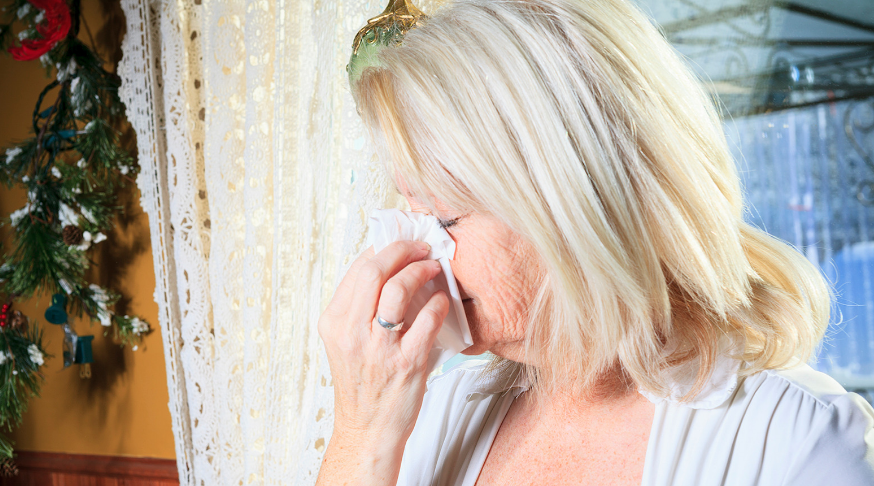Elderly Mental Health Issues: Common Signs and Causes and Ways To Help

Maybe you are wondering about the changes you have noticed in your loved one. Perhaps you are concerned about how they behave or even angry and resentful.
Some of this may be normal as we age, but many mental health issues can develop with aging: depression, anxiety, and dementia are the most common. Knowing the risk factors associated with experiencing mental health issues is essential because the earlier these issues are addressed, the better.
The articles in this series will focus on the common signs and causes of mental health issues in older adults. As we age, it is important to evaluate our mental health so that we can avoid or minimize any problems.
What Is Mental Health, And How Does It Affect You?
Mental health is a state of well-being in which you can make sense of your experiences, feel confident and happy, have positive relationships with others, and be productive.
Mental health may include both emotional and physical health. It can be influenced by your relationships with family and friends, community, the environment, etc.
Your mental health can be affected by your attitude and behaviors, as well as by your circumstances. Some people may experience mental health issues because of the physical and emotional changes that occur with age, medical conditions, stress, and other factors.
How Can Mental Health Affect Your Life?

Mental health is more than just your mood—it’s your emotions, thoughts, and behaviors. This is essential to how you interact with yourself and others.
Healthy mental health means that you can function at your best. You can have a positive relationship with yourself and feel confident and happy in certain situations. You can enjoy activities that make you feel good, maintain a sense of well-being, and cope with life’s challenges.
The quality of mental health a person has is not always linked to the level of physical health a person may have.
On the other hand, mental health illness can affect your performance in daily activities, relationships, and functioning at work or school.
When you experience mental health issues, you may have trouble coping with your daily life. You may struggle to sleep or forget things that were once easy to remember. You might be more irritable or less interested in the people around you. Your feelings about yourself and others can change.
Common Signs of Mental Health Issues In Older Adults
Mental health issues can occur at any age and in any setting, but they often begin with the following odd or unusual signs:
1. A Sudden Change in Behavior
Having ups and downs in your mood, personality, and behavior is normal. But when these issues are affecting your daily life—causing you to behave differently in relationships with others or affecting your ability to function—they may be a sign of mental health issues.
Identify the warning signs of mental illness early to help them recognize when changes in their behavior are part of a larger issue and not a normal reaction.
2. Difficulty Making Decisions
Making decisions can be difficult when you feel overwhelmed by your circumstances or emotions. You might not be able to think clearly, and you might respond impulsively. These problems with decision-making can also be signs of mental illness.
As you age, you may experience changes in your decision-making ability. You may have more difficulty following through on decisions or making plans, or it might be harder to do things that used to be easy for you.
3. Mood Changes

Moods can shift over time because of changing circumstances and life experiences, but some people develop depression or anxiety symptoms that last longer. These symptoms can disrupt daily activities and relationships.
Physical activity and interest in life can also change. For example, if you used to enjoy exercise, you might start feeling less energized or experience mental health problems.
Mood changes can be signs of depression or changes in your mental health, but they might also be symptoms of a medical condition.
4. Physical Symptoms that don’t Respond to Treatment
It is common for older adults to experience chronic pain. However, it can be a sign of depression if the pain worsens instead of better with treatment such as exercise and medication.
5. Changes in Lifestyle and Retirement
Work is typically a major part of your life. But retirement and changes in work status can cause you to lose the routine, structure, and social interaction you once had.
If you are retired from a job or no longer working, you may start feeling lonely or less useful to the people around you. You might develop anxiety or depression as a result.
Changes in financial status can also affect your mental health.
6. Changes in Concentration
Age-related changes in the brain can cause concentration problems. You may have trouble focusing on important tasks or following through on activities.
It greatly affects your quality of life and productivity. In fact, the most common type of mental health issue for older adults is forgetfulness.
Other Factors That Contribute to Mental Health Issues in Older Adults
Mental health issues are common in older adults but are not inevitable. If you avoid mental health issues, you greatly reduce your risk of developing them.
Signs and symptoms of mental health issues often get worse as we age, so it’s important to identify and treat them early. The following factors may play a role in mental health problems:
DEPRESSION & ANXIETY

Sadness, emptiness, lack of motivation, feelings of worthlessness, and a loss of energy are all symptoms of depression.
Many people wonder if they can prevent depression and how they can lower their risk of depression.
- Social isolation: People who are isolated and have few social connections are more likely to feel depressed than those with close relationships.
- Stressful life events: Events that are stressful can contribute to depression. Circumstances may be specific, like the loss of a loved one, or general, such as a financial crisis.
- Low mood: Being sad for extended periods of time can contribute to depression.
DEMENTIA
Dementia is a decline in mental abilities, such as memory and communication. Brain diseases and other medical conditions can cause it. People with dementia have difficulties with daily life. They might repeat the same questions or tasks over and over.
With the increasing age of the population, dementia is now one of the world’s most significant chronic health problems. Chronic illnesses associated with dementia include:
- Diabetes,
- Hypertension
- Heart disease
- Memory loss
- Alzheimer’s disease
- Parkinson’s disease
The risk of developing dementia increases with age, but dementia is not inevitable. There are steps that you can take to improve your mental health and well-being as you get older:
1. Make Time:
Identify your priorities and schedule enough time each day to do what you enjoy.
2. Eat Well:
Enjoy fruits and vegetables—they’re good for you! A healthy diet can lessen memory loss and dementia.
3. Stay Mentally Stimulated:
Ensure to keep your mind active by reading a book or taking a class. This will help lower the risk of developing dementia and other mental health issues.
AGING

The immune system diminishes with age and can’t fight off infections. As people age, it’s common to experience cognitive declines, such as memory loss and dementia. You may experience hearing loss and vision problems.
Aging can also cause adverse changes in the brain, especially in areas that work together to regulate emotions. These changes can interfere with how you feel, think, and function. However, you can take steps to reduce your risk of mental health issues later in life.
• Regular Physical Activity:
Walking a few minutes a day can lead to better health and a more positive outlook on life. Learning new activities adds meaning and joy to life and can help maintain your brain health and prevent cognitive decline.
• Avoid Alcohol or Substance Abuse:
Avoiding alcohol or drugs can relieve stress and make it easier to sleep. It can also stabilize moods and improve cognitive function. Various substances, including alcohol, can damage the brain and increase the risk of dementia.
• Social Connections:
Being connected to family and friends provides a sense of purpose and supports your mental health. Regular social interaction also helps you avoid depression.
It is important to talk about your mental health. If you are feeling depressed, there are many options for treatment, such as counseling and medication.
Final Thoughts
It’s common for older adults to experience mental health issues, and these issues often go untreated. This can lead to a loss of purpose or feeling alone. If you’re feeling mentally unwell, don’t be afraid to seek professional help.
We at Serenity Senior Care are here to help you with concern and compassion. Whenever you need us, we’re here for you. We want to make life as comfortable for you as we can.
As a top assisted living facility in Bloomfield, New Jersey, Serenity Senior Care stands out among other care facilities. The staff at Serenity Senior Care is highly trained and knowledgeable in their field. Our services provide the right care tailored to meet your needs.
Please don’t hesitate to contact us for further information on our services and how we can help your loved ones. Providing comfort, care, and compassion to you or a loved one is our pleasure.


